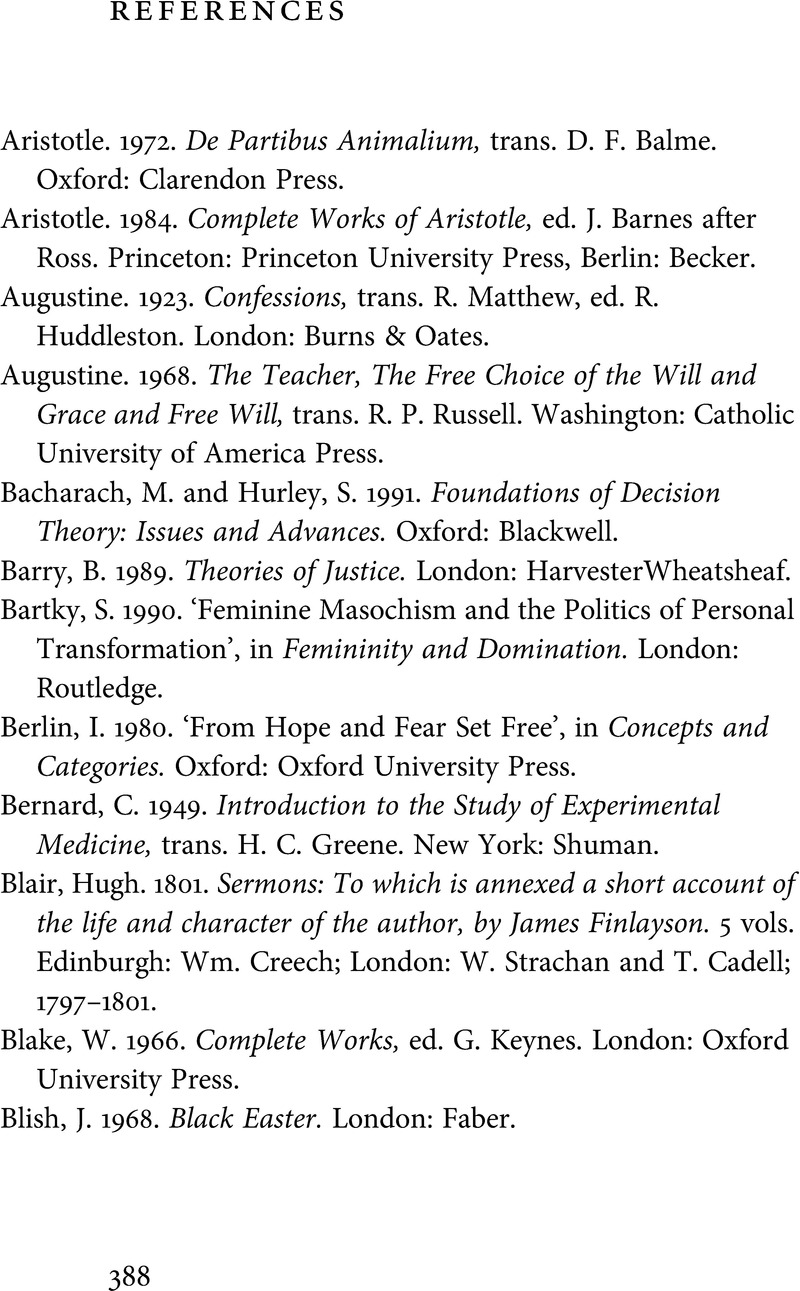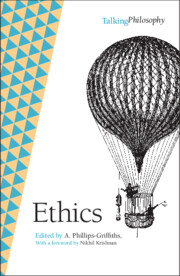Book contents
- Ethics
- Talking Philosophy
- Ethics
- Copyright page
- Contents
- Foreword
- Preface
- List of Contributors
- Objective Prescriptions
- Integrity and Self-Identity
- The Better Part
- Invincible Knowledge
- Emmanuel Levinas: Responsibility and Election
- Ethical Absolutism and Education
- Morals and Politics
- Duties and Virtues
- The Definition of Morality
- Ethics, Fantasy and Self-transformation
- How We Do Ethics Now
- Justice without Constitutive Luck
- Who Needs Ethical Knowledge?
- Institutional Ethics
- References
- Index
- References
References
Published online by Cambridge University Press: 14 January 2023
- Ethics
- Talking Philosophy
- Ethics
- Copyright page
- Contents
- Foreword
- Preface
- List of Contributors
- Objective Prescriptions
- Integrity and Self-Identity
- The Better Part
- Invincible Knowledge
- Emmanuel Levinas: Responsibility and Election
- Ethical Absolutism and Education
- Morals and Politics
- Duties and Virtues
- The Definition of Morality
- Ethics, Fantasy and Self-transformation
- How We Do Ethics Now
- Justice without Constitutive Luck
- Who Needs Ethical Knowledge?
- Institutional Ethics
- References
- Index
- References
Summary

- Type
- Chapter
- Information
- Ethics , pp. 388 - 398Publisher: Cambridge University PressPrint publication year: 2022



